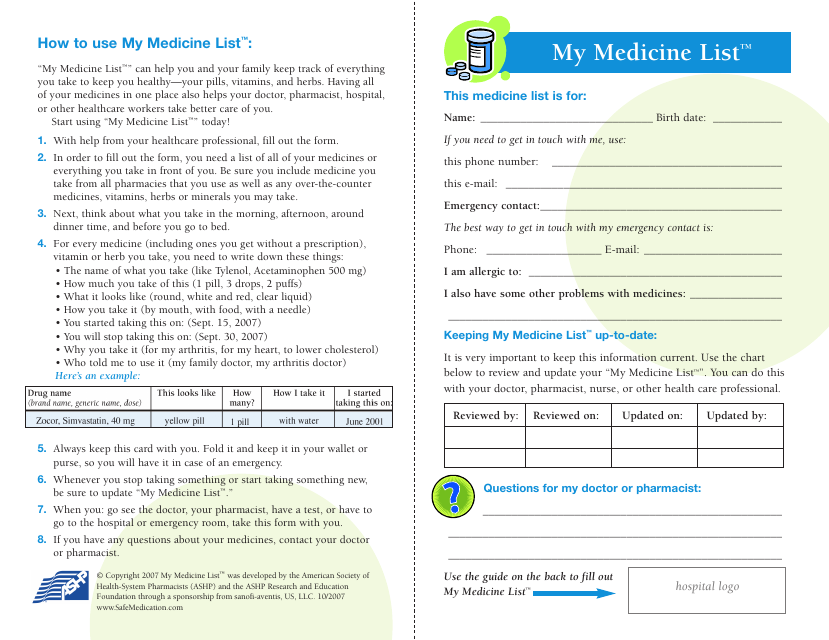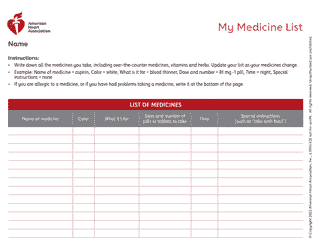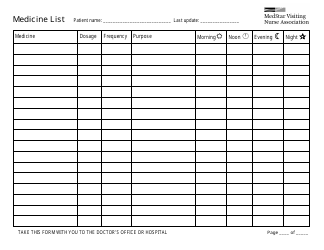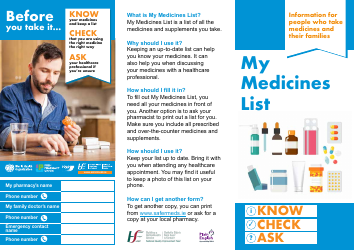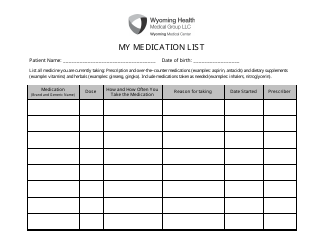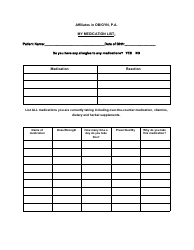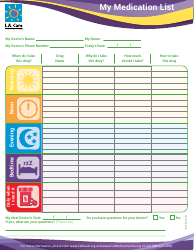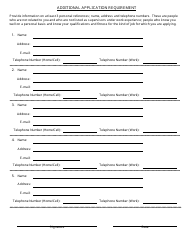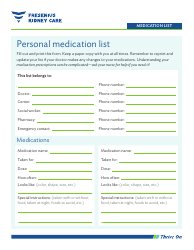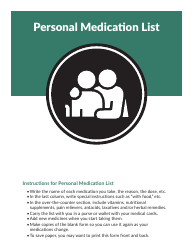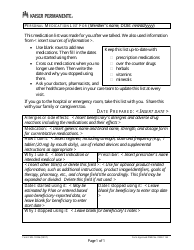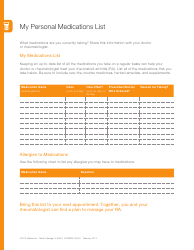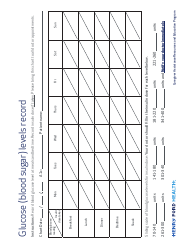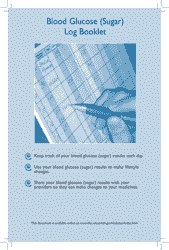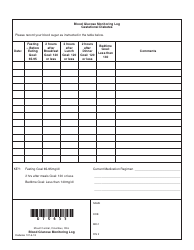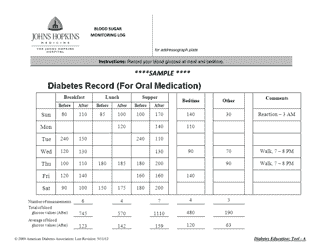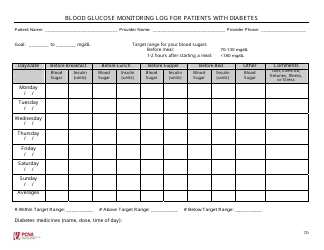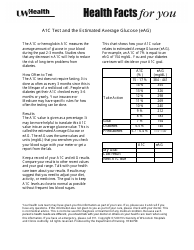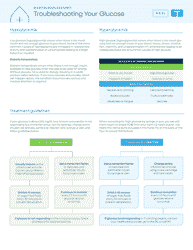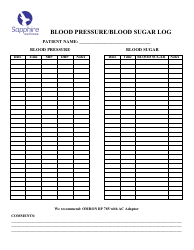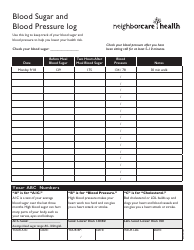Personal Medicine List - American Society of Health-System Pharmacists (Ashp)
The Personal Medicine List created by the American Society of Health-System Pharmacists (ASHP) is designed to help individuals keep track of their medications. It allows you to list the names, dosages, and other important information about the medications you take. This list can be useful for sharing with healthcare professionals during appointments or whenever necessary.
FAQ
Q: What is a personal medicine list?
A: A personal medicine list is a document that includes all the medications you are currently taking.
Q: Why is it important to have a personal medicine list?
A: Having a personal medicine list is important because it helps healthcare professionals understand what medications you are taking, which can prevent medication errors and ensure safe and effective treatment.
Q: How can I create a personal medicine list?
A: You can create a personal medicine list by listing all the medications you take, including prescription drugs, over-the-counter medications, vitamins, and supplements.
Q: What information should be included in a personal medicine list?
A: A personal medicine list should include the name of the medication, the dosage, the frequency of use, and the reason for taking the medication.
Q: How often should I update my personal medicine list?
A: You should update your personal medicine list whenever there are any changes to your medications, such as starting or stopping a medication, or changing the dosage.
Q: What should I do if I have questions about my medications?
A: If you have questions about your medications, you should contact your healthcare provider or pharmacist for clarification.
Q: Can I use a mobile app to manage my personal medicine list?
A: Yes, there are mobile apps available that can help you manage your personal medicine list. These apps can remind you to take your medications and provide information about your medications.
Q: Is it necessary to share my personal medicine list with all healthcare providers?
A: Yes, it is important to share your personal medicine list with all your healthcare providers, including doctors, nurses, and pharmacists, so they have a complete understanding of your medication regimen.
